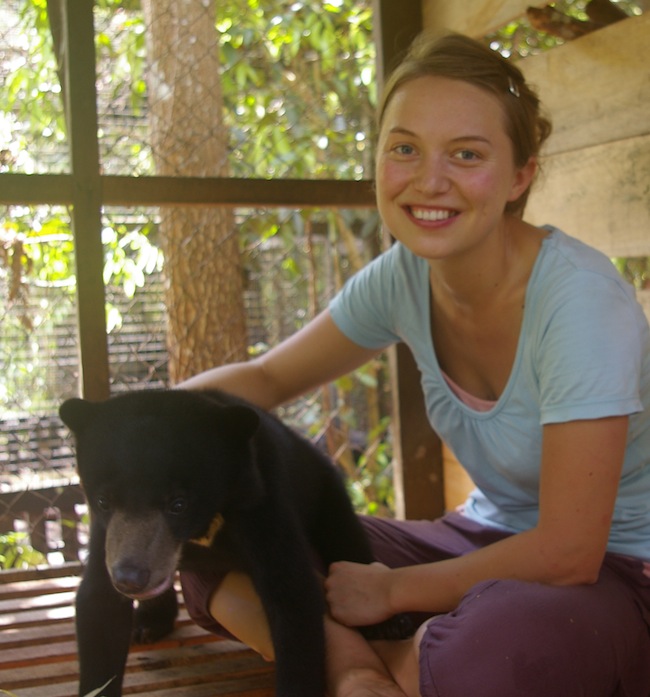 “I always knew I wanted to study animals. I hadn't originally planned on studying psychology but I signed up for an interest paper and after my first lecture, on behaviour and learning, I was hooked. I realized that my interest in animal behaviour spanned both zoology and psychology, and so decided to do a double major to combine the two fields.
“I always knew I wanted to study animals. I hadn't originally planned on studying psychology but I signed up for an interest paper and after my first lecture, on behaviour and learning, I was hooked. I realized that my interest in animal behaviour spanned both zoology and psychology, and so decided to do a double major to combine the two fields.
“The longer you study the more you come to value the quality of the departments and the people that work in them – and this is certainly the case with Psychology and Zoology. The staff really go out of their way to help you, and their strong research focus is conveyed through the quality of their teaching.
“Since graduating, volunteering at two wildlife rehabilitation centres in Africa opened my eyes to the reality of conservation practice in developing countries, and made me realise the value of scientific input to its overall success.”
Zara recently volunteered at Orangutan Foundation International in Kalimantan, Indonesian Borneo, as the sun bear release coordinator. “My position related to both my undergraduate majors as it required both a background in biology and conservation, and an understanding of behaviour.
“When you try and prepare an animal raised in captivity for release into the wild you deal with a range of problems, including habituation to people, lack of foraging skills, poor predator/prey recognition and inappropriate threat response. Wildlife rehabilitation requires an understanding of learned and innate behaviour, social and cognitive development, and training methods such as operant and classical conditioning, all of which were covered during my psychology degree.
“I particularly enjoyed collaborating with experts in sun bear biology, bear reintroduction and bear husbandry. I loved working directly with the bears, getting to know their different personalities and finding out their little quirks! Sun bears are incredible animals in desperate need of help.”
Zara is currently completing her Master of Science with the Durrell Institute of Conservation and Ecology at the University of Kent, United Kingdom. “I am still aiming for a career in wildlife conservation that combines scientific research with conservation practice, with an emphasis on the problems faced by large carnivores."